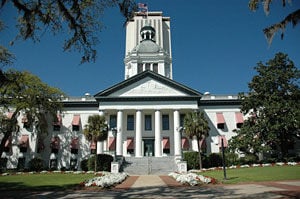The ongoing discussion surrounding the concept of radicalization has gained renewed attention, particularly in academic and social spheres. In a recent article, Don Overcash reflects on the contrasting outcomes of radical beliefs, drawing a distinction between those inspired by religious teachings and those led into violent extremism. Overcash’s insights explore the implications of radicalism when it diverges from love and truth, highlighting the historical context of early Christian disciples as a counter-cultural force.
Radicalization, as Overcash points out, is not a new phenomenon. It often leads individuals to adopt beliefs that clash with societal norms, sometimes resulting in destructive actions. In a November 7, 2025, article from Fox News, journalist Peter D’Abrosca discussed the intense reactions of academics against controversial figures, underscoring a potential trend of radicalization within educational institutions. Overcash suggests that these reactions echo the warnings found in Romans 1:18-32, where the Apostle Paul speaks of those who stray from foundational values.
Paul’s observations illustrate a critical turning point where individuals, by choosing their own paths, may face the consequences of their actions. This notion of being “given over” signifies a disturbing descent into moral and spiritual decline, as one becomes increasingly disconnected from core teachings that advocate love and compassion. Overcash argues that this disconnect leads to societal decay and personal turmoil.
In contrast, the early followers of Jesus, often referred to as disciples, exemplified a radicalism rooted in transformative love. In his work, “The Message of the Sermon on the Mount,” John Stott describes these disciples as a Christian counter-culture that significantly impacted their society. They were not only messengers of the gospel but also agents of ethical and political change, motivated by a profound understanding of agape love.
These disciples acted as “salt” and “light” in their communities, countering social decay and revealing truths often obscured by darkness. Their adherence to Jesus’ teachings fostered spiritual growth and promoted relationships grounded in respect and equality, irrespective of social, ethnic, or gender differences. Unlike the violent tendencies associated with modern radicalization, the radicalism of Jesus’ disciples emphasized love, humility, and service.
The early Christian communities rejected retribution and social hierarchies, advocating instead for compassion and support for the marginalized. They promoted values such as fidelity and monogamy while opposing practices like infanticide, which were prevalent in the ancient world. Their commitment to the sanctity of life influenced later legislative changes, including bans enacted by Constantine the Great and Valentinian I in the Roman Empire.
Overcash draws a poignant conclusion: while radicalization can lead to division and violence, the mission of making disciples focuses on love, community, and spiritual growth. This movement is a testament to how faith can reshape societal norms, fostering a culture of compassion and justice.
As discussions around radicalization and its implications continue, it is essential to consider the transformative power of Christ-centered discipleship. This path not only leads to personal change but also encourages collective movements toward justice, mercy, and reconciliation. Overcash calls upon individuals to embrace this calling, becoming the salt and light that the world urgently requires.
With a background serving on the Loveland City Council from 2015 to 2023, Don Overcash brings a unique perspective to this discourse. As a personal and professional coach, consultant, and author, he is dedicated to inspiring and equipping individuals and teams across various sectors to create positive change in their communities.







































































